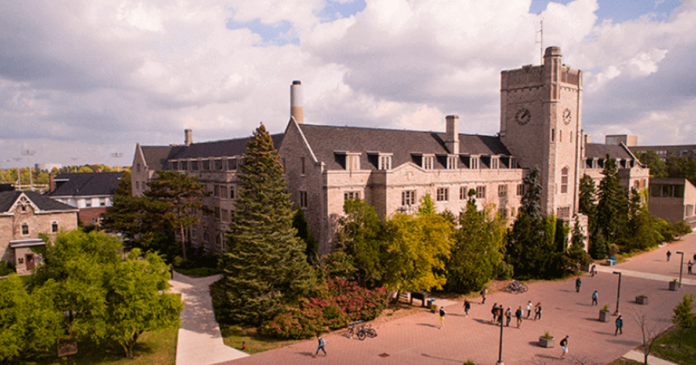The University of Guelph has come to the defence of a yoga class exclusive to black persons after the class was criticized on social media for appearing to further racial segregation.
The “Restorative Yoga” class was organized by the university’s Cultural Diversity team and the Black Student Association, and was “exclusive to Black-identifying students, staff, and faculty at U of G.” It took place on Nov. 1.
The online criticism began after Canadian journalist Jonathan Kay proceeded to call out the event on Twitter, writing “Canada’s Guelph University… and instructor (Selam Debs) are now segregating yoga classes by skin colour. Because of anti-racism.”
Waterloo-based yoga instructor Selam Debs is described on the university’s website as an “antiracism educator, an anti-oppression coach, a social justice advocate, a student in dismantling anti-Black racism, an accomplice in dismantling anti-Indigenous racism, xenophobia, Islamophobia and a believer in LGBTQ2S+ & disability rights through an intersectional lens.”
In a statement, the university says it “does not condone hateful or discriminatory comments or behaviour directed at any member of our community.” While they referenced “anti-Black racism posts”, the administration did not give any examples of what they deemed to be hateful comments.
The university added that “safe spaces are created to give people from equity-deserving groups support, a sense of well-being and a chance to heal” and states that Debs was invited to “provide a safe, healing space for Black students, faculty, and staff to share their lived experiences and learn about the supports available to them at U of G.”
Debs defended the segregated yoga class online, calling it “sacred.” She also accused Kay of being “harmful” and of sending his “right-wing trolls” to harass her.
In an interview with True North, Kay said he did not harass Debs, adding “I just sort of pointed it out (that) there’s this racially segregated event, like I didn’t attack her personally.”
In addition to defending the “Black-exclusive” yoga session, Debs told local outlet Guelph Today that the way the session was “attacked and targeted” is a form of racism and white supremacy.
“Black spaces are incredibly important because of the impacts of daily microaggressions, macroaggressions, anti-Black racism, and navigating system racism,” she said.
“Many cultural groups come together and have sacred spaces, and the fact that a Black-exclusive yoga space would be attacked and targeted in this way is a form of anti-Black racism, is a form of white supremacy, and continually reinforces the ways in which Black students, faculty (and) community members experience racism in Canada.”
Kay told True North that the idea of restricting an event to one race on the basis of sacredness and safety is “insane” because “every segregationist wants to justify racial segregation on the basis of safety.”
“Every racist feels unsafe with members of other races around,” he added.
Kay also objected to Debs telling Guelph Today that the blowback over the segregated yoga session “reinforces the need for Black exclusive spaces” as “even gathering in a sacred way puts (black people) in harm’s way.”
“If I can paraphrase… she’s saying when I criticize racial segregation, that means we need more racial segregation. Also that racial segregation is sacred. Every one of those things is crazy,” said Kay.
Debs and her yoga session did receive support from progressive accounts on Twitter. Some also took jabs at Kay.
The University of Guelph is not the first Canadian university where racially segregated activities have taken place.
Trent University’s Student Association unveiled a “Freedom Lounge”, which it describes as a “safe, comfortable, and accountable space for BIPOC and Racialized students to create community, feel empowered, celebrate their lived experiences, and honour their histories.”
Meanwhile, McMaster University held a special segregated graduation ceremony for “Black identifying students” last spring.
True North reached out to Debs for comment but she did not respond prior to publication.

